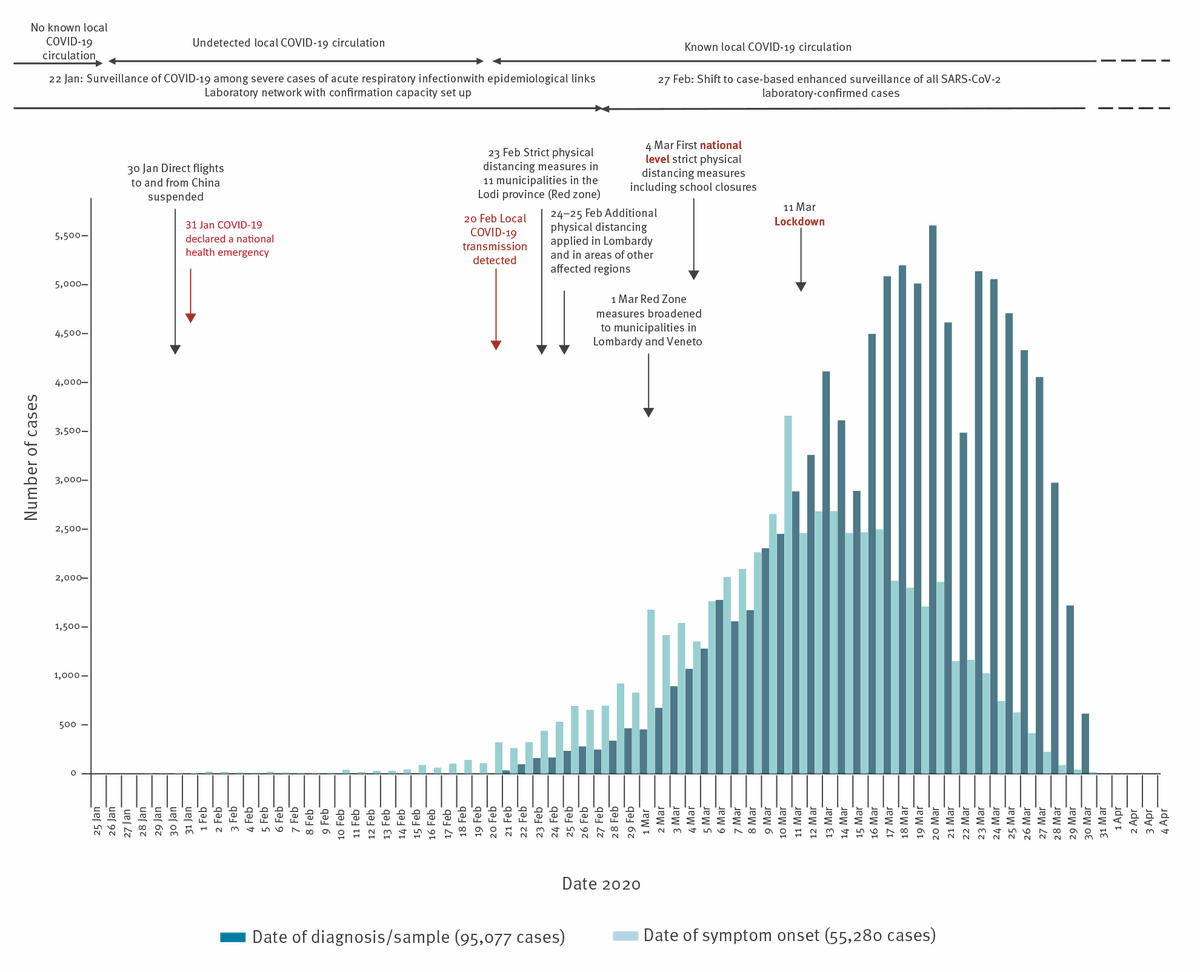The early phase of the Covid pandemic in Lombardy, spring 2020. In most provinces (including Lodi and Bergamo) Rt peaked in February, before the onset of mass testing. 

The paper reconstructs the beginning of the pandemic before the first public case in Codogno (Feb 14). It was already widespread in Lombardy by mid February, and showed no connection to population density. 

The paper reports by symptom onset, so take another 5-6 days off to capture the outbreak by infection date. This confirms the many, statistical mistakes of the "Burn-Murdoch race chart" era. We were chasing ghosts that had passed thru already.
researchgate.net/publication/35…
researchgate.net/publication/35…
"Mattia", hospitalized in Codogno (Lodi) on Feb 14, identified as the Covid patient 1 on Feb 20, the very day Rt in Lodi peaked *by symptom onset*. Two day later the first reported death in Vo (Padua), some 180km East. 

The cited Riccardo (2020) paper gives us this (Italy-wide) graph, on the difference between date reported and symptom onset. eurosurveillance.org/content/10.280… 

And finally the geographic flow. We still got the Lodi-to-Ancona route, but more likely now the Bergamo-to-Bolzano route, commensurate with the outbreak northeast of Bergamo. This route continues to Innsbruck, Tyrol. 

Aaaand of course something we've known for a long time: the age distribution of mortality from Covid. 

It was over before we had a chance to chase the ghosts.
https://twitter.com/oliverbeige/status/1493562359876665346
• • •
Missing some Tweet in this thread? You can try to
force a refresh





